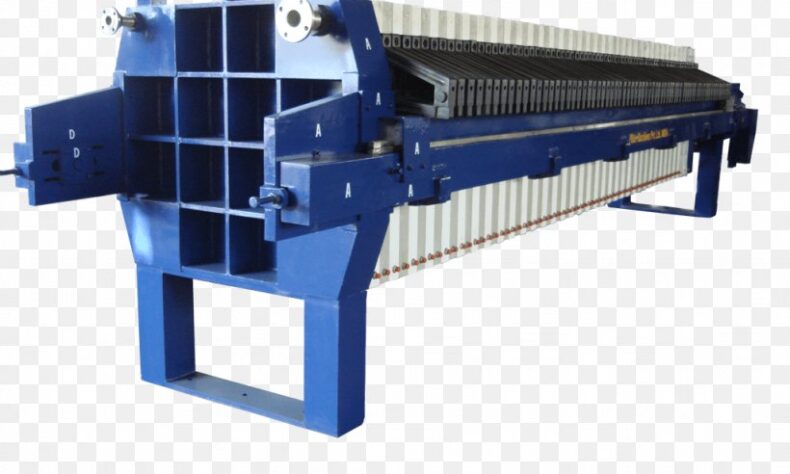
Filter press are a simple but effective way of removing contaminants from wastewater. This can be done through mechanical, physical or chemical means and each type will have its own strengths and weaknesses. How you go about it depends on what contaminants you want to remove, how much water flow is needed, what kind of water you’re dealing with and how much money you’re willing to spend. No matter which filter type you choose though, it’s going to need regular maintenance. So in addition to deciding which method is best for your project, think about whether or not it will require skilled labor on an ongoing basis. And if it does?
Filtration for Filter press Industrial Purposes
Though industrial filtration systems range in function and application, they have one thing in common: they all require sturdy equipment that can withstand heavy-duty use. Filter presses are one such piece of equipment. A filter press machine utilizes a hydraulic pump or other type of press mechanism to force water or other liquid through layers of filtering media. The process traps contaminants and unwanted particulates on the filter cloth, which needs to be regularly replaced for optimal performance. Filter presses are highly efficient and effective at removing dirt from liquids, making them an essential component in many industries, including paint manufacturing and metal finishing, pharmaceuticals, waste treatment facilities, water treatment plants, paper mills, mining facilities—and many more!
Desalination of Saltwater
The most important use for desalination is in addressing water shortages, as it can help provide fresh water to areas that have previously been unable to access enough potable water. And while many experts believe desalination will never fully replace traditional ways of accessing fresh water, it’s definitely starting to make headway. In fact, according to some estimates, desalination could meet up to 30 percent of global demand by 2050. Most desalination plants today rely on an energy-intensive process called reverse osmosis (RO), in which seawater or brackish groundwater is pushed through membranes with high pressure.
A filter press refers to the piece of machinery that presses pulp as it passes through it, producing a more concentrated slurry that contains less water and fewer impurities than before. A filter press is ideal for separating solids from liquids in an industrial setting, and they’re especially effective in wastewater management and wastewater treatment facilities, or in any other business with large volumes of liquid waste that needs to be purified or recycled in some way. This can be done using one or more Membrane filter press, depending on the amount of liquid being filtered at once and the level of concentration you want to achieve with your slurry.
Purifying Drinking Water in Developing Countries Filter press
Filter presses, also known as sedimentation filters, use gravity to separate and purify water. This is especially beneficial in countries with limited infrastructure; unlike many other water treatment technologies that require high levels of electricity, Automatic filter press are easily maintained even in places without access to reliable power sources. The process begins when sediment or solids clog small holes at one end of a long cylinder called an annular space. When it reaches maximum capacity, excess water escapes through another outlet at the top of the cylinder. Sediment stays trapped inside and gravity pulls it out through openings along each side as well.
Increasing Efficiency in Various Industries
Filter presses are used in industrial wastewater treatment, food processing, pharmaceuticals and biotechnology. A filter press is a type of press that uses filtering media (fabric) to separate solids from liquids. Filter presses can be used in conjunction with many different filtration methods. The Filter press industry has now evolved and various innovations have been made in order to meet specific customer requirements such as automated filters for production efficiency or best practices for powder filtration systems. With such innovations, it makes perfect sense why filter press manufacturers in India has seen an increase lately from all over world. Their promise lies on providing quality products that last longer along with customized solutions for almost every pressing need you may have.
The Importance of Efficiency in Industry
One of the most common components in industrial processing is that of water treatment. It is through water treatment, or what is known as filtration, that pollution can be mitigated and resource management can improve. When it comes to resource management, filter presses are one particular type of equipment that can help conserve water and energy usage.
Fortunately, companies like filter press manufacturers in India are capable of creating highly efficient filtering solutions for businesses in order remove dangerous pollutants from air or water for safer handling and disposal. This kind of technology will not only protect employees’ physical health but also reduce costs associated with worker’s compensation claims as well as accidents at work sites.






